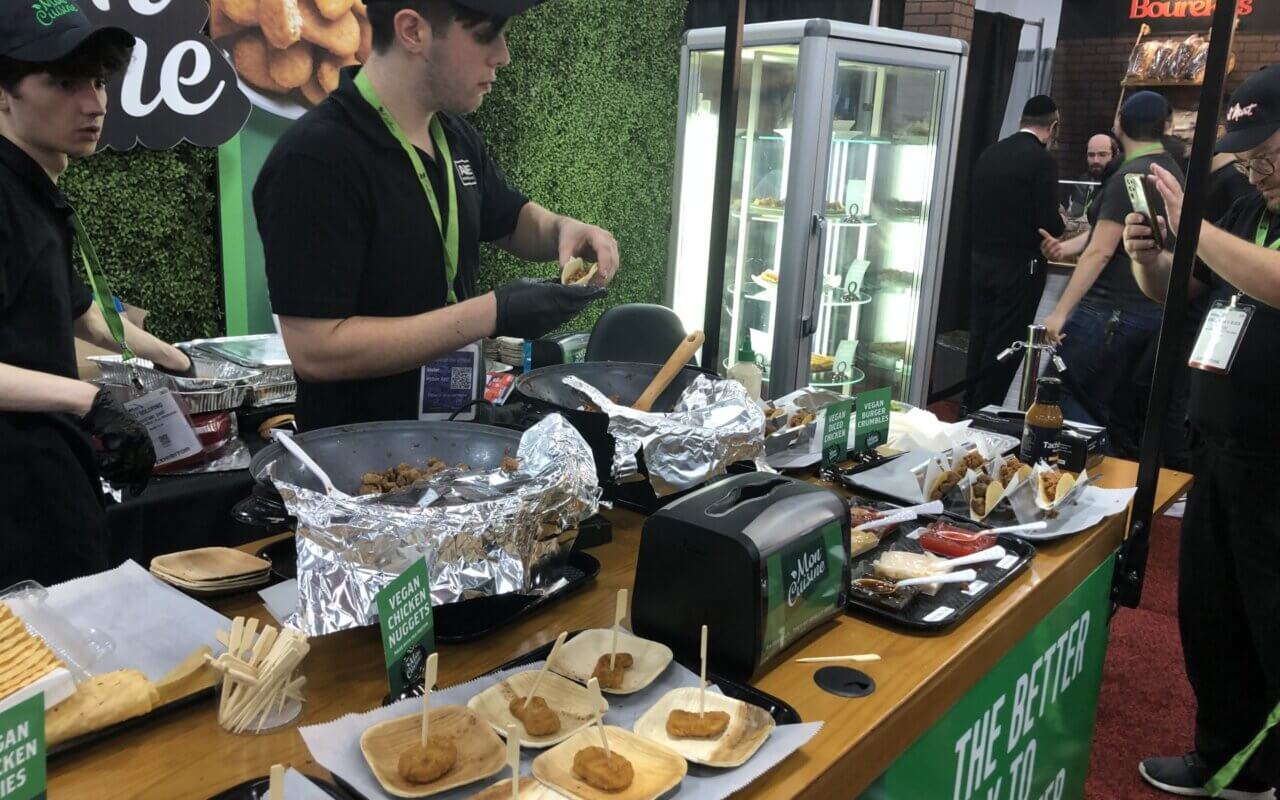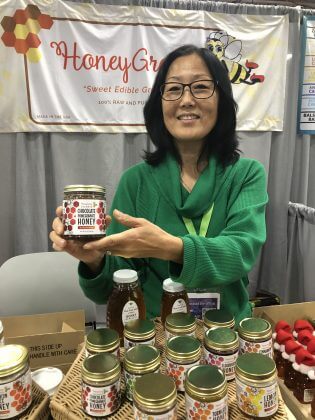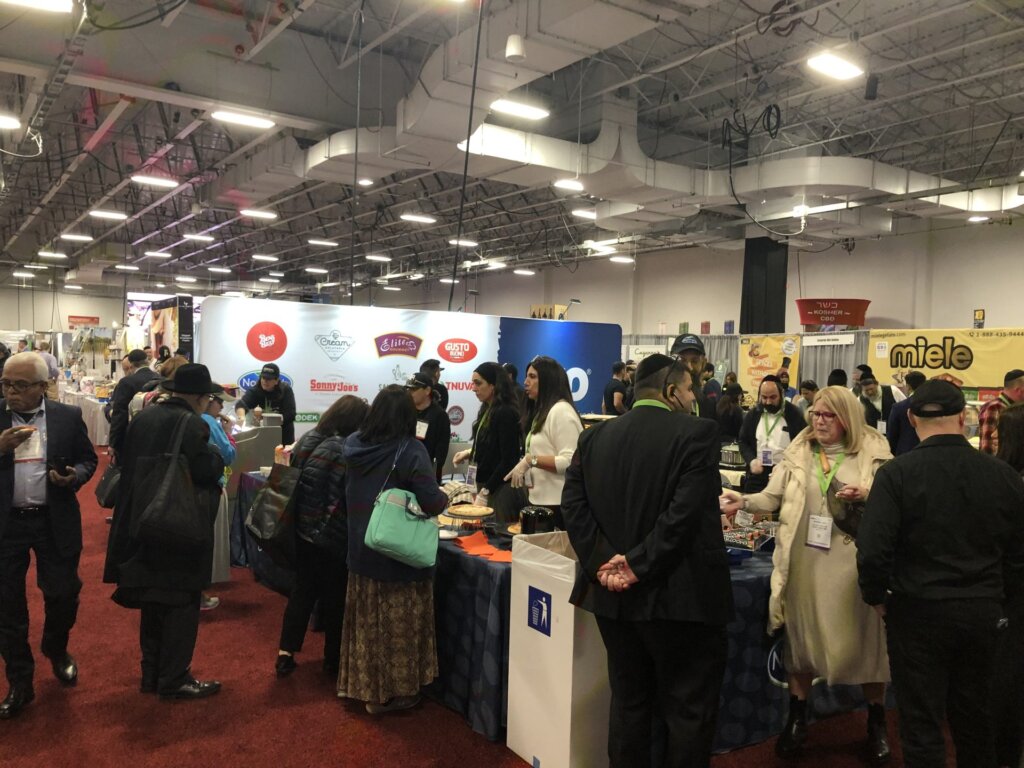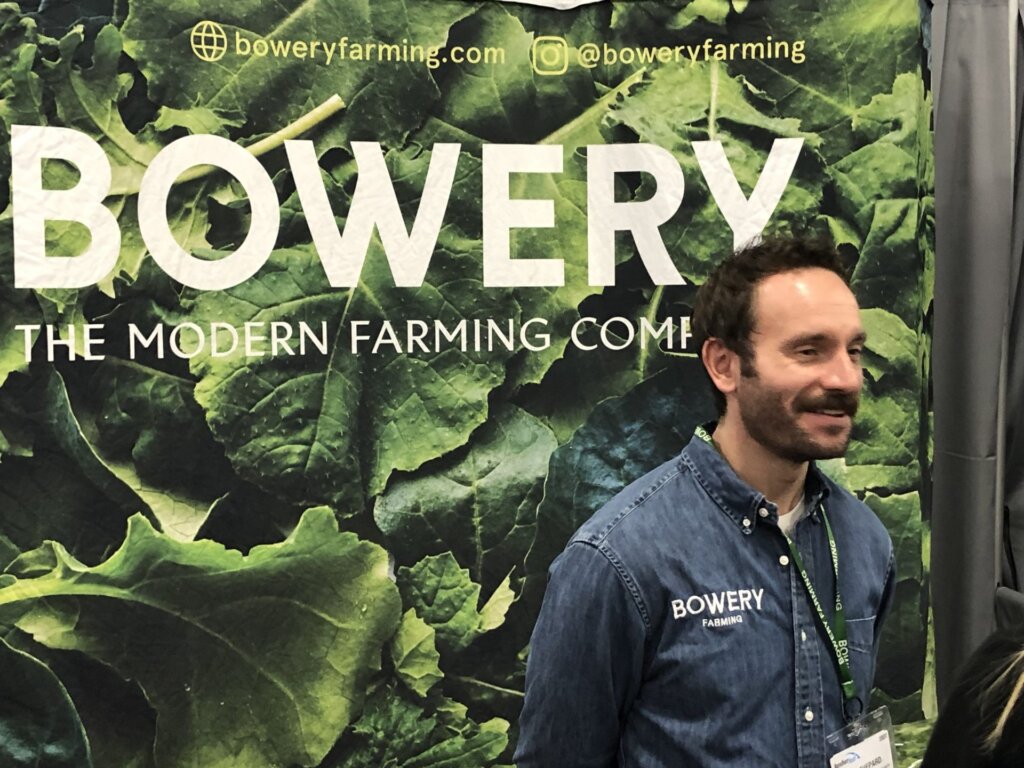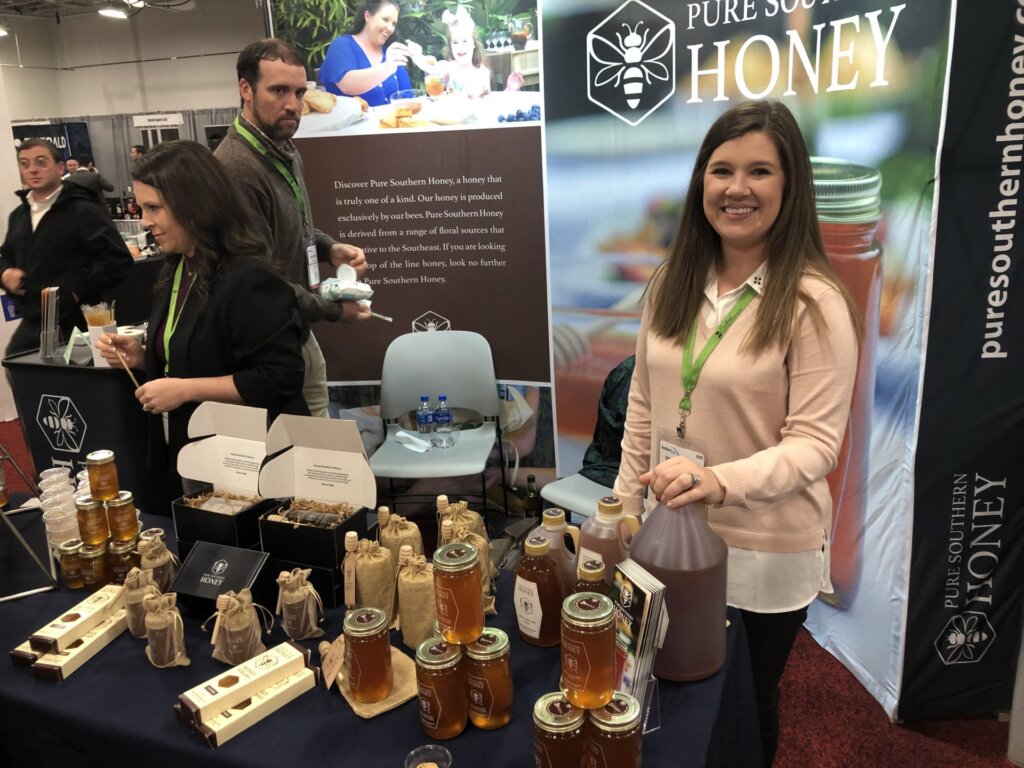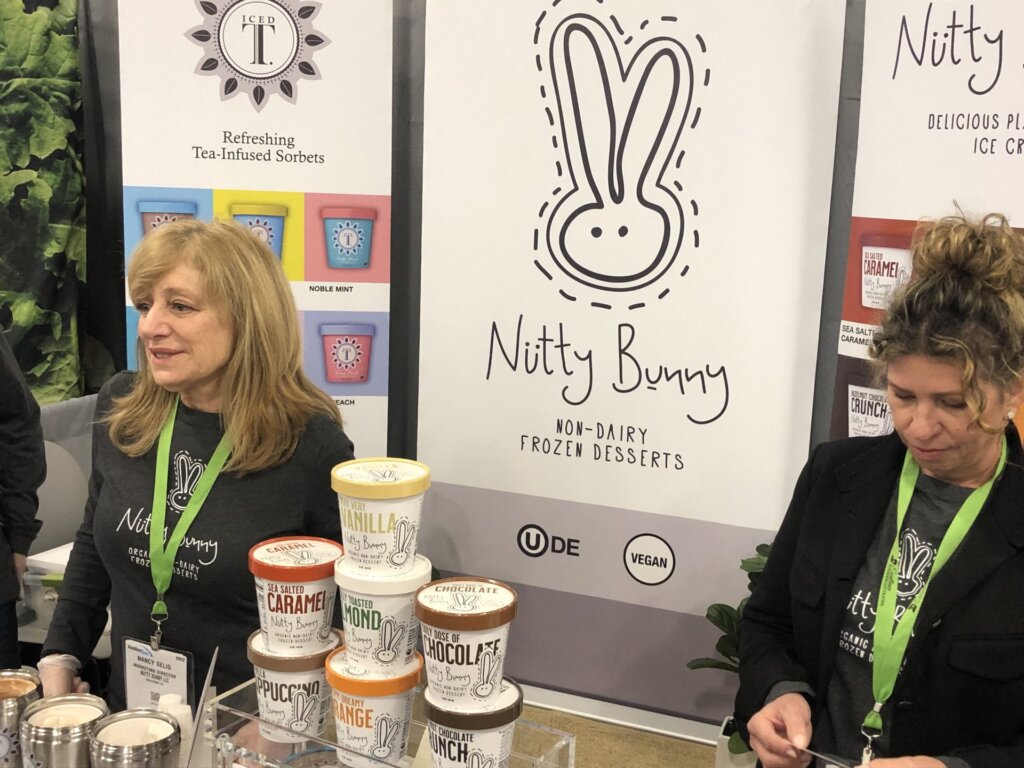Original Article On The Jerusalem Post
These restaurants are not simply places for kosher travelers to fill their tanks with a quick falafel or a bad slice of pizza. These are high-quality establishments.
Walking the streets of Rome on a hot summer day and encountering a surprising number of kosher options in at least five neighborhoods, it is easier to understand the famous proverbs about Rome (“When in Rome, do as the Romans do”; “Rome wasn’t built in a day”; “All roads lead to Rome”; and “Fiddle while Rome burns”) than to make sense of why a city of only 20,000 Jews seems to have more kosher eateries than other world cities with substantially larger Jewish populations. Kosher burger restaurants, pizza parlors, gelato stores (okay, that one is obvious), and bakeries abound.
And these restaurants are not simply places for kosher travelers to fill their tanks with a quick falafel or a bad slice of pizza. These are high-quality establishments where observant Jews can “in Rome, do what the Romans do.” They can sit in outdoor or indoor cafés or fine restaurants leisurely sipping coffee and eating pastries, pizza by the gram, handmade pasta, a large selection of meat, poultry, and fish and, of course, artichokes, a local favorite, prepared Jewish or Roman style.
Exploring the kosher culinary delights of Rome
As we set out on foot in the Piazza Bologna neighborhood in the northeast part of town, a 45-minute walk from the Trevi Fountain, we encountered more than half a dozen kosher dining options, food markets, and Judaica stores. Fonzie, the 1950s-style burger chain in four locations in the city, was closed on our 11 a.m. stroll. As they open from 12-3:30 p.m. and again from 7-11 p.m. each night, we would be back (fonzieburgers.com).
Flour Farina & Cucina on Via Padova 78 (flour-roma.com/) is the kosher bakery with perhaps the most user-friendly hours on the planet. They are open from 7 a.m. to 11:30 p.m., offered just what we needed on our arrival day in Rome for a series of academic conferences, and would serve as the daily go-to place and ideal spot to purchase food to break our upcoming 17th of Tammuz fast. Other than a kosher certificate behind the register and one local family with many kids wearing kippot, Flour appeared to be just like any other Rome café – a large outdoor eating area and tables inside with a few customers eating pastries and drinking coffee at the counter (this is apparently a way to save a few euros).
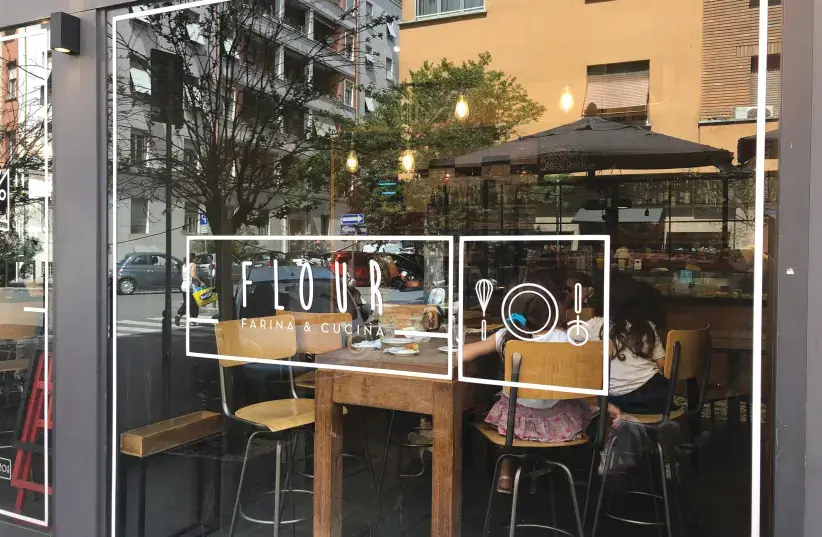
FLOUR FEATURES delicious pizza, breakfast dishes, coffees, and pastries. Great hours with indoor/outdoor dining. (credit: HOWARD BLAS)
We were content to sample six different thin pizzas (with and without cheese – pesto, potato, mozzarella, and more) cut with shears, weighed on a scale on the counter, and quickly heated for our outdoor dining pleasure. The thinly sliced pizza was a perfect complement to our cappuccinos. We could have also chosen from a wide assortment of eggs (omelets, fried, poached, and “red” (shakshuka), as well as pancakes and chocolate, banana, and pine nuts that caught my attention, as did bagel scomposto (deconstructed bagel – with smoked salmon) and tagliolini (sea bass and lemon tagliolini, a type of ribbon pasta).
On subsequent daily visits to Flour – a convenient 12-minute walk from our Best Western Hotel – small sandwiches to go would be a life saver on long days exploring the city or sitting in a conference room. Carefully packed challot and an assortment of cookies purchased Thursday evening Italy time made it all the way back to the US for Shabbat dinner.
We returned to Fonzie, and it left us scratching our heads. How is it possible that Manhattan offers barely two or three burger joints, while Rome has a chain of four delicious, affordable restaurants with options for beef, chicken, or veggie burgers, along with crispy fries and onion rings? We chose the outdoor dining option, although the inside looked comfortable too.
Talk about options! Burgers are available in four weight classes – 120, 150, 240, or 300 gr. Not sure where else in the world you can find a kosher chili beef bacon burger in the same restaurant as bagels with beef or chicken. For the less adventurous, chicken nuggets and wings are also on the menu.
The next night, following a day of exploring old neighborhoods and touring the Coliseum, a night in the Jewish Ghetto was on our agenda. We wandered briefly in this historic district on the east bank of the Tiber River in Rione Sant’Angelo and sized up our many dining options. We decided on Renato al Ghetto, Cucina Giudaico Romanesca at Via del Portico d’Ottavia 5/16 (renatoalghetto.com/). Everyone advises travelers to sample as many artichokes as possible while in Rome. Carciofo alla giudia-artichoke (Jewish-style fried artichokes) at Renato ended up being the best of the three we sampled in as many days. The calamarata con pesto di basilico, pinoli e pomodorini confit (thick ring pasta with basil pesto, pine nuts, and confit cherry tomatoes); pollo con i peperoni (chicken with sweet pepper); and straccetti di manzo con rucola e pachino (strips of beef with rocket and cherry tomatoes), eaten at a relaxed outdoor restaurant pace, were delectable and left us wondering how we might prepare such dishes at home.
The outdoor dining option allowed us to interact with – or tune out – nearby table mates. The Israeli one-year-old twins toddling on the cobblestones and their mom who visited our table proved irresistible. Their extended family of 30, in town from Elkana and Petah Tikva for a quick Sunday to Thursday trip, enjoyed a child-friendly grill and Israeli salads at the restaurant next to ours.
We were not sure why the waiter handed us a paper bag at the start of the meal – then realized that each customer receives a similar bag and inside it is a soft bread. The section on the menu detailing 14 allergens was another nice touch. The restaurant offers a dine-in or takeaway option for Shabbat dinner and lunch: renatoalghetto.com/shabbat.
After one more day of touring in Rome, which included the Vatican and the Sistine Chapel, the Spanish Steps, and the Trevi Fountain – on a very hot day – we made our way to Marlene’s Gelateria for some much-needed cooling off. We opted for this dairy delight before another meat dinner. Anything chocolate, coffee, or pistachio in a cup or cone is highly recommended. After a bit of strolling in the Ghetto, we were ready for another relaxing outdoor dinner – this time at Su Ghetto by Ba Ghetto (baghetto.com/en/restaurants/sughetto-kosher-restaurant-rome/).
It was another night of tough choices. We went with dishes we are not likely to create at home. Our two appetizers included more artichokes, carciofo alla Giudia (Jewish artichokes) and alette di pollo laccate al miele con suGhetto harissa (honey-lacquered chicken wings with spicy harissa sauce), which were larger and more flavorful than those typically served at American bars to football viewing patrons. We strategically chose three entrees for two people with the idea that handmade ravioli – even cold – would serve as a great 4 a.m. pre-fast meal.
The filetto di spigola in crosta di patate (sea bass fillet in potato crust), agnolotti al ragù (small pieces of flattened pasta with Bolognese sauce), and raviolone patate e tartufo saltato con pomodorini e basilica (big ravioli filled with potatoes and truffle in cherry tomatoes and basil sauce) exceeded our expectations and left our taste buds smiling. Su Ghetto also offers Shabbat dinner and lunch options, as well as cooking classes.
As we were finishing our meal, we watched a female patron in a bright pink dress briefly leave her table and her party of 15 or so at a nearby restaurant to photograph our restaurant and other ones nearby. We realized this semi-celebrity was BusyInBrooklyn, the cookbook writer, food blogger, and Instagram star Chanie Apfelbaum, leading a kosher-food tour of Italy.
OUR FEW days in Rome showed us that there is simply an abundance of kosher restaurants – especially in the Jewish Ghetto. Many have predictable names like Ba Ghetto Milky, Bellacarne, Caslino, La Polleria, and, of course, Bona Pizza and Daruma Sushi.
Friends recommended Yotvata (yotata.it), a family-run dairy restaurant with fish, pasta, pizza, and, naturally, fried artichokes served in booths in the Ghetto. We will have to put this – as well as kosher restaurants in the Tevere, Monteverde, and Marconi neighborhoods – on our list for next time.
One member of our party attended a conference where the kind point person went overboard in ordering kosher food so that one individual would feel comfortable at an otherwise non-kosher banquet. The conference organizers ordered an overabundance of tasty food from Bellacarne (bellacarne.it/en/food-menu-2023), which included tabbouleh, fried fish and salads, charcuterie, hummus and mushrooms, spaghetti and meatballs, and of course – an artichoke! The large green delivery bag was useful for taking food back to the hotel in a cab at the end of the evening.
The final taste of Italy came on my United flight from Rome to Newark, where I enjoyed a meal and a snack by Rustichelli Faenza. While the chicken and side dishes were tasty, the cardboard box with sayings from the Midrash, Talmud, A.D. Gordon, and Fran Lebowitz kept me smiling. ■

